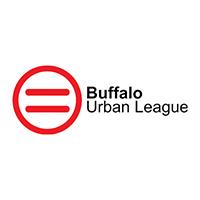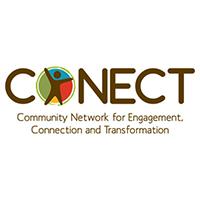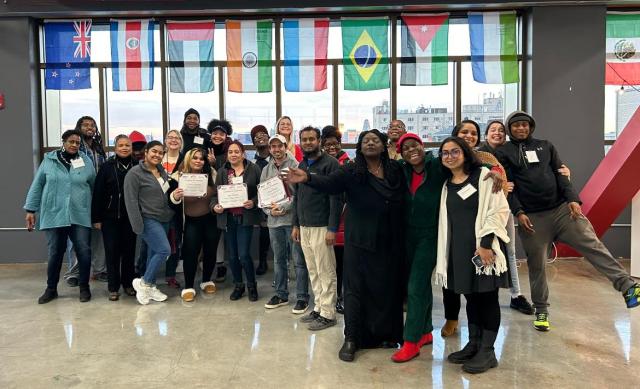
In development – stay tuned!
Please contact us at admin@conect-with-us.org or klasse@dyc.edu with questions!
The Buffalo Community Health Worker Training Program (CHWTP) aims to provide Core Competency training to new Community Health Workers (CHWs) in our region and advanced CHW training to existing CHWs. This program is supported by the Health Resources and Services Administration (HRSA) of the U.S. Department of Health and Human Services (HHS) through an award totaling $2,999,835. The HRSA grant is led by D’Youville University. Key partners include CoNECT/Community Health Worker Network of Buffalo, the Buffalo Urban League, the University at Buffalo and many additional community partners.
Renee Cadzow, PhD
D’Youville Project Director
cadzowr@dyc.edu
Erin Klass, MBA
D’Youville Data and Operations Coordinator
klasse@dyc.edu
Our goals for the CHWTP are to expand the public health workforce by training new and existing CHWs, advance health equity and support for historically marginalized communities, expand educational training curriculum, reduce barriers to CHWs by providing eligible trainees with participant support, and establish a network of partnerships by creating new or leveraging existing relationships with entities organizations.
Other program goals and objectives include:
“A Community Health Worker (CHW) is a frontline public health worker who is a trusted member of and/or has an unusually close understanding of the community served. This trusting relationship enables the worker to serve as a liaison/link/intermediary between health/social services and the community to facilitate access to services and improve the quality and cultural competence of service delivery.” (APHA CHW Section https://www.apha.org/apha-communities/member-sections/community-health-workers)
CHWs have a foundation of essential qualities on which they build their practice (which includes skills, knowledge, and an understanding of CHW roles).
Learn more about Community Health Workers at the following sites:
The CHW Core Competencies Training, administered by the Community Health Worker Network of Buffalo in partnership with D’Youville, provides participants with an overview of critical community health and education issues and familiarizes trainees with a historical overview of practice of public health and health care, theories of cognitive development, the ethic of care and social responsibility/social justice, stages of behavior change, and strength-based approaches to individual and community development. This 28 hour/4-day training is interactive, participatory and accommodates individuals with various learning styles and preferences. Trainers have extensive knowledge, skills, and experience in the content areas and community and supervisory experience. Research and training materials are based on national best practices and infused with local context.
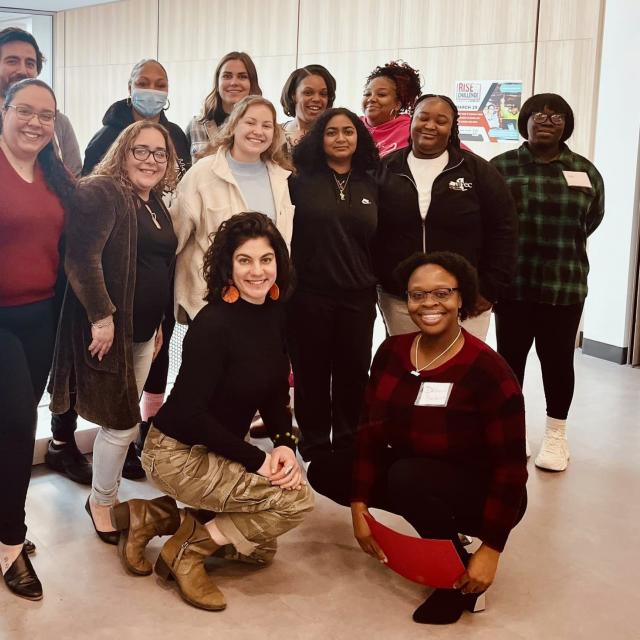
"It made me view things differently...Opened my eyes to the connections and people and the power we have when we work together."
Advanced and specialty training is being developed for CHWs working in many different sectors. This includes, but is not limited to:
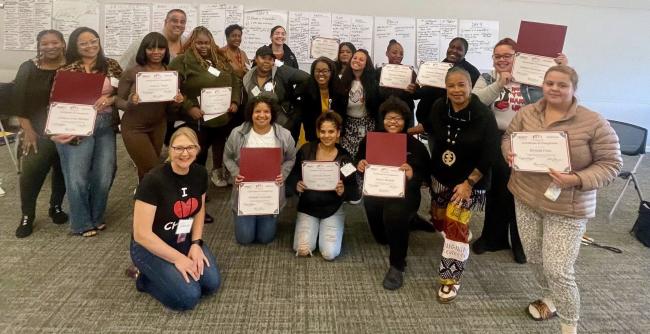
In development – stay tuned!
Please contact us at admin@conect-with-us.org or klasse@dyc.edu with questions!
